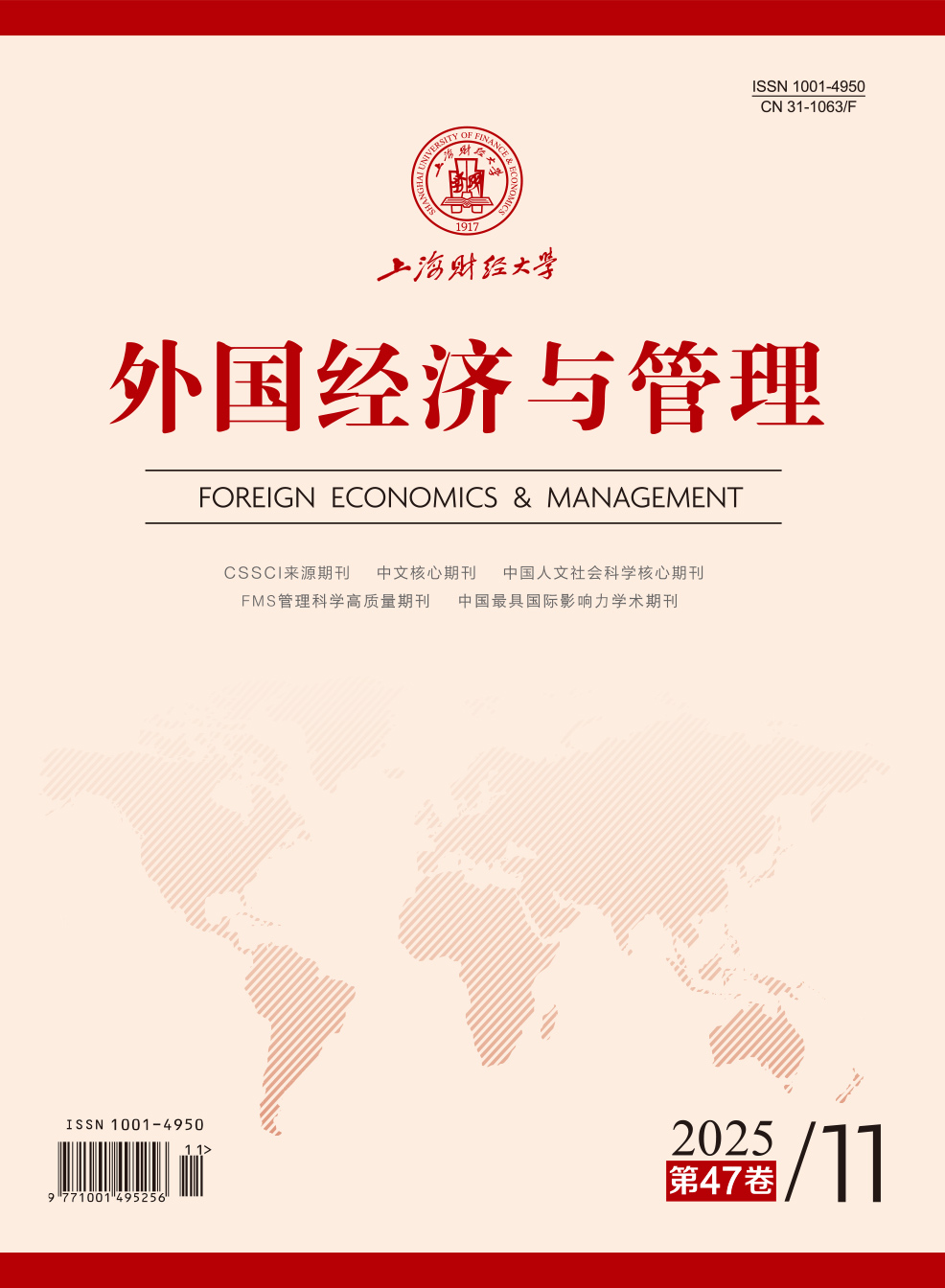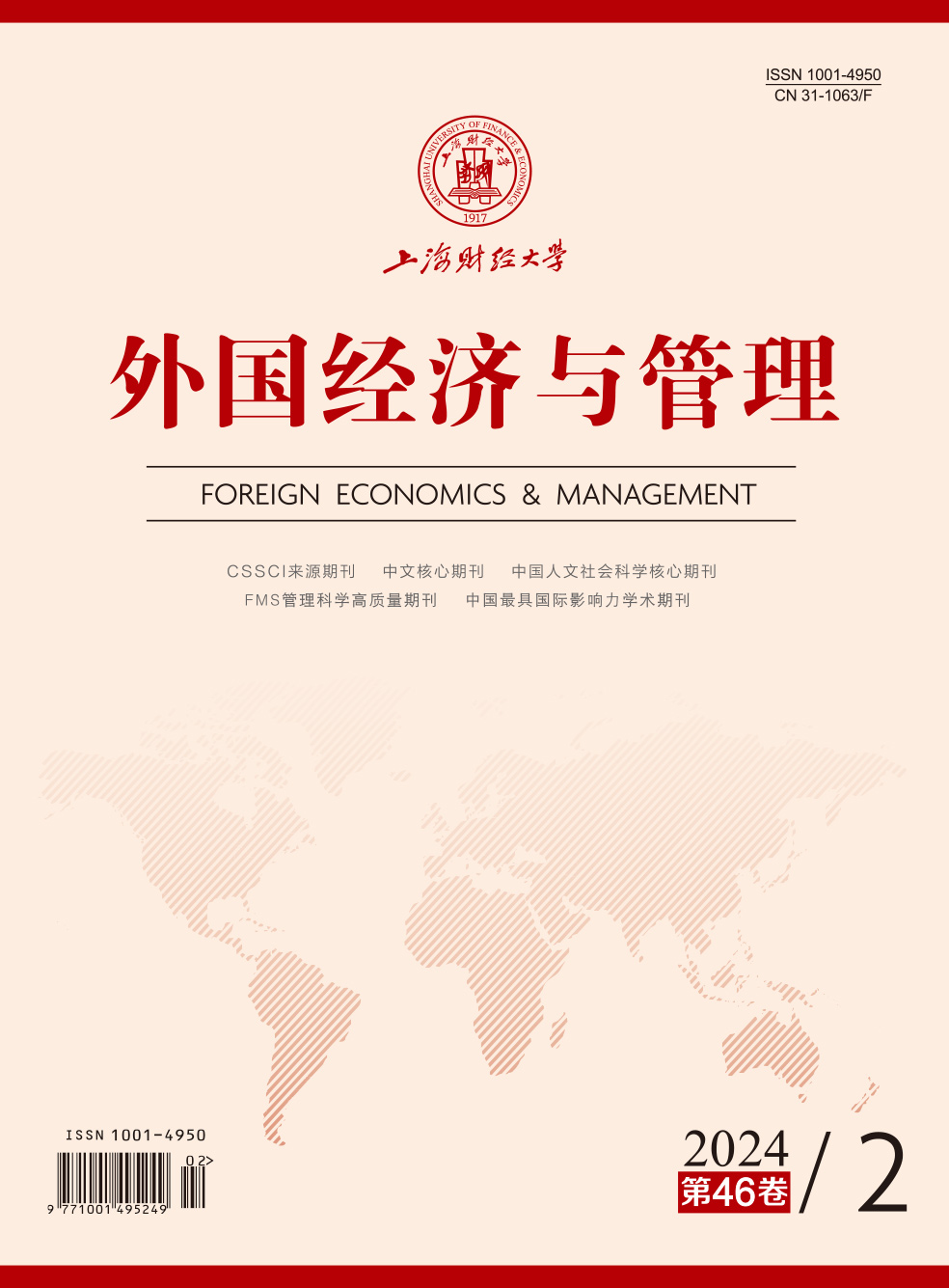定性研究的重要性日益凸显。然而,鉴于定性研究有其复杂的哲学基础,加之定量研究范式处于强势和主导地位,学者们对“如何评价并提升定性研究可信度”感到疑惑。为了有效地释疑解惑,本文首先回溯定性研究的历史沿革,审视实证主义、诠释主义、社会建构主义三类哲学基础,以便揭示定性研究的本质特征;其次,结合顶级期刊论文阐释、对比不同哲学基础的定性研究之可信度评价标准与提升举措,以明确定性研究可信度的内核以及哲学基础对评价标准的影响;最后,归纳研究结论,展望定性研究发展趋势,预测可信度评价标准的演化。本文试图站在历史发展和哲学基础的角度,全面审视和阐释定性研究可信度问题,系统地解答学者对定性研究可信度的疑惑,以期促进构建具有中国特色的管理学理论。
定性研究可信度释疑——从历史沿革与哲学基础谈起
摘要
参考文献
1 杜运周, 贾良定. 组态视角与定性比较分析(QCA): 管理学研究的一条新道路[J]. 管理世界, 2017, 33(6): 155-167.
2 贾旭东, 何光远, 陈佳莉, 等. 基于“扎根精神”的管理创新与国际化路径研究[J]. 管理学报, 2018, 15(1): 11-19. DOI:10.3969/j.issn.1672-884x.2018.01.002
3 井润田, 孙璇. 实证主义vs. 诠释主义: 两种经典案例研究范式的比较与启示[J]. 管理世界, 2021, 37(3): 198-216. DOI:10.3969/j.issn.1002-5502.2021.03.013
5 毛基业, 李亮. 管理学质性研究的回顾、反思与展望[J]. 南开管理评论, 2018, 21(6): 12-16.
6 潘善琳, 崔丽丽. SPS案例研究方法: 流程、建模与范例[M]. 北京: 北京大学出版社, 2016.
7 王冰, 齐海伦, 李立望. 如何做高质量的质性研究——中国企业管理案例与质性研究论坛(2017)综述[J]. 管理世界, 2018, 34(4): 140-145. DOI:10.3969/j.issn.1002-5502.2018.04.012
8 Abbott A. Department and discipline: Chicago sociology at one hundred[M]. Chicago: University of Chicago Press, 1999.
9 Aguinis H, Solarino A M. Transparency and replicability in qualitative research: The case of interviews with elite informants[J]. Strategic Management Journal, 2019, 40(8): 1291-1315. DOI:10.1002/smj.3015
10 Armstrong J. Naturalistic inquiry[A]. Salking N J. Encyclopedia of research design[C]. Thousand Oaks, CA: Sage, 2010.
11 Bansal P, Corley K. The coming of age for qualitative research: Embracing the diversity of qualitative methods[J]. Academy of Management Journal, 2011, 54(2): 233-237. DOI:10.5465/amj.2011.60262792
12 Bansal P, Smith W K, Vaara E. New ways of seeing through qualitative research[J]. Academy of Management Journal, 2018, 61(4): 1189-1195. DOI:10.5465/amj.2018.4004
13 Beynon H. Working for ford[M]. Harmondsworth: Penguin, 1973.
14 Blaikie N. Approaches to social enquiry[M]. Cambridge: Polity Press, 2007.
15 Bluhm D J, Harman W, Lee T W, et al. Qualitative research in management: A decade of progress[J]. Journal of Management Studies, 2011, 48(8): 1866-1891. DOI:10.1111/j.1467-6486.2010.00972.x
16 Bruni A, Gobo G. Qualitative research in Italy[J]. Forum:Qualitative Social Research, 2005, 6(3): 41.
17 Charmaz K. Constructing grounded theory: A practical guide through qualitative analysis[M]. London: Sage Publications, 2006.
18 Comte A (Ed. ), Martineau H (Trans. ). The positive philosophy of Auguste Comte[M]. London: J. Chapman, 1853.
19 Cook T D, Campbell D T. Quasi-experimentation: Design and analysis issues for field settings[M]. Boston: Houghton Mifflin, 1979.
20 Cornelissen J P. Preserving theoretical divergence in management research: Why the explanatory potential of qualitative research should be harnessed rather than suppressed[J]. Journal of Management Studies, 2017, 54(3): 368-383. DOI:10.1111/joms.12210
21 Cunliffe A L. Crafting qualitative research: Morgan and Smircich 30 years on[J]. Organizational Research Methods, 2011, 14(4): 647-673. DOI:10.1177/1094428110373658
22 Das T H. Qualitative research in organizational behaviour[J]. Journal of Management Studies, 1983, 20(3): 301-314. DOI:10.1111/j.1467-6486.1983.tb00209.x
23 de Rond M, Lok J. Some things can never be unseen: The role of context in psychological injury at war[J]. Academy of Management Journal, 2016, 59(6): 1965-1993. DOI:10.5465/amj.2015.0681
24 Denzin N K, Lincoln Y S. Handbook of qualitative research[M]. Thousand Oaks: Sage, 1994.
25 Du W Y, Pan S L. Boundary spanning by design: Toward aligning boundary-spanning capacity and strategy in IT outsourcing[J]. IEEE Transactions on Engineering Management, 2013, 60(1): 59-76. DOI:10.1109/TEM.2012.2206114
26 Eisenhardt K M. Building theories from case study research[J]. Academy of Management Review, 1989, 14(4): 532-550. DOI:10.2307/258557
27 Eisenhardt K M, Graebner M E. Theory building from cases: Opportunities and challenges[J]. Academy of Management Journal, 2007, 50(1): 25-32. DOI:10.5465/amj.2007.24160888
28 Ernest P. The nature of mathematics and teaching[EB/OL]. https://education.exeter.ac.uk/research/centres/stem/publications/pmej/pome/pompart7.htm, 1996-10-31/2022-10-08.
29 Fairhurst E. Organizational rules and the accomplishment of nursing work on geriatric wards[J]. Journal of Management Studies, 1983, 20(3): 315-332. DOI:10.1111/j.1467-6486.1983.tb00210.x
30 Fineman S, Mangham I. Data, meanings and creativity: A preface[J]. Journal of Management Studies, 1983, 20(3): 295-300. DOI:10.1111/j.1467-6486.1983.tb00208.x
31 Frost N, Nolas S M, Brooks-Gordon B, et al. Pluralism in qualitative research: The impact of different researchers and qualitative approaches on the analysis of qualitative data[J]. Qualitative Research, 2010, 10(4): 441-460. DOI:10.1177/1468794110366802
32 Gephart Jr R P. Qualitative research and the academy of management journal[J]. Academy of Management Journal, 2004, 47(4): 454-462. DOI:10.5465/amj.2004.14438580
33 Gioia D, Corley K, Eisenhardt K, et al. A curated debate: On using “templates” in qualitative research[J]. Journal of Management Inquiry, 2022, 31(3): 231-252. DOI:10.1177/10564926221098955
34 Gioia D A, Corley K G, Hamilton A L. Seeking qualitative rigor in inductive research: Notes on the Gioia methodology[J]. Organizational Research Methods, 2013, 16(1): 15-31. DOI:10.1177/1094428112452151
35 Glaser B G. Theoretical sensitivity: Advances in the methodology of grounded theory[M]. Mill Valley, CA: Sociology Press, 1978.
36 Glaser B G, Strauss A L. The discovery of grounded theory: Strategies for qualitative research[M]. Chicago, IL: Aldine Transaction, 1967.
37 Golden-Biddle K, Locke K. Composing qualitative research[M]. 2nd ed. Thousand Oaks, CA: Sage, 2007.
38 Guba E G, Lincoln Y S. Fourth generation evaluation[M]. Newbury Park, CA: Sage, 1989.
39 Habermas J. Knowledge and interest[A]. Emmet D, Macintyre A. Sociological theory and philosophical analysis[M]. London: Palgrave Macmillan, 1970.
40 Healy C S J. Le Play’s contribution to sociology: His method[J]. American Catholic Sociological Review, 1947, 8(2): 97-110. DOI:10.2307/3707549
41 Huang P Y, Pan S L, Ouyang T H. Developing information processing capability for operational agility: Implications from a Chinese manufacturer[J]. European Journal of Information Systems, 2014, 23(4): 462-480. DOI:10.1057/ejis.2014.4
42 Latour B, Woolgar S. Laboratory life: The social construction of scientific facts[M]. Princeton: Princeton University Press, 1979.
43 Lee B, Humphrey C. More than a numbers game: Qualitative research in accounting[J]. Management Decision, 2006, 44(2): 180-197. DOI:10.1108/00251740610650184
44 Lee T W. Using qualitative methods in organizational research[M]. Thousand Oakes, CA: Sage, 1998.
45 Lengermann P M. The founding of the American Sociological Review: The anatomy of a rebellion[J]. American Sociological Review, 1979, 44(2): 185-198. DOI:10.2307/2094504
46 Miles M B. Qualitative data as an attractive nuisance: The problem of analysis[J]. Administrative Science Quarterly, 1979, 24(4): 590-601. DOI:10.2307/2392365
47 Mogey J M. The contribution of Frédéric Le Play to family research[J]. Marriage and Family Living, 1955, 17(4): 310-315. DOI:10.2307/346940
48 Morgan G, Smircich L. The case for qualitative research[J]. Academy of Management Review, 1980, 5(4): 491-500. DOI:10.2307/257453
49 Okasha S. Philosophy of science: A very short introduction[M]. Oxford: Oxford University Press, 2002.
50 Open Science Collaboration. Estimating the reproducibility of psychological science[J]. Science, 2015, 349(6251): aac4716. DOI:10.1126/science.aac4716
51 Ott T E, Eisenhardt K M. Decision weaving: Forming novel, complex strategy in entrepreneurial settings[J]. Strategic Management Journal, 2020, 41(12): 2275-2314. DOI:10.1002/smj.3189
52 Powell E E, Baker T. In the beginning: Identity processes and organizing in multi-founder nascent ventures[J]. Academy of Management Journal, 2017, 60(6): 2381-2414. DOI:10.5465/amj.2015.0175
53 Pratt M G. Fitting oval pegs into round holes: Tensions in evaluating and publishing qualitative research in top-tier North American journals[J]. Organizational Research Methods, 2008, 11(3): 481-509. DOI:10.1177/1094428107303349
54 Pratt M G, Kaplan S, Whittington R. Editorial essay: The tumult over transparency: Decoupling transparency from replication in establishing trustworthy qualitative research[J]. Administrative Science Quarterly, 2020, 65(1): 1-19. DOI:10.1177/0001839219887663
55 Putnam H. The many faces of realism[M]. La Salle, IL: Open Court, 1987.
56 Rawls A W. The wartime narrative in US sociology, 1940-1947: Stigmatizing qualitative sociology in the name of ‘science’[J]. European Journal of Social Theory, 2018, 21(4): 526-546. DOI:10.1177/1368431018754499
57 Risjord M. Philosophy of social science: A contemporary introduction[M]. New York: Routledge, 2014.
58 Schreiber R S, Stern P N. Using grounded theory in nursing[M]. New York, NY: Springer Publishing Company, 2001.
59 Strauss A L, Corbin J M. Basics of qualitative research: Techniques and procedures for developing grounded theory[M]. Thousand Oaks, CA: Sage, 1998.
60 Suddaby R. From the editors: What grounded theory is not[J]. Academy of Management Journal, 2006, 49(4): 633-642. DOI:10.5465/amj.2006.22083020
61 Symon G, Cassell C, Johnson P. Evaluative practices in qualitative management research: A critical review[J]. International Journal of Management Reviews, 2018, 20(1): 134-154. DOI:10.1111/ijmr.12120
62 Tsui A S, Jia L D. Calling for humanistic scholarship in China[J]. Management and Organization Review, 2013, 9(1): 1-15. DOI:10.1111/more.12013
63 Turner B A. The use of grounded theory for the qualitative analysis of organizational behaviour[J]. Journal of Management Studies, 1983, 20(3): 333-348. DOI:10.1111/j.1467-6486.1983.tb00211.x
64 Van Maanen J. Reclaiming qualitative methods for organizational research: A preface[J]. Administrative Science Quarterly, 1979, 24(4): 520-526. DOI:10.2307/2392358
65 Van Maanen J. Hold the Mayo: Some comments on the origins of organizational ethnography[J]. Journal of Organizational Ethnography, 2013, 2(1): 105-109.
66 Wei T, Clegg J. Untangling the integration–performance link: Levels of integration and functional integration strategies in post-acquisition integration[J]. Journal of Management Studies, 2020, 57(8): 1643-1689. DOI:10.1111/joms.12571
67 Welch C, Piekkari R, Plakoyiannaki E, et al. Theorising from case studies: Towards a pluralist future for international business research[J]. Journal of International Business Studies, 2011, 42(5): 740-762. DOI:10.1057/jibs.2010.55
68 Welch C, Plakoyiannaki E, Piekkari R, et al. Legitimizing diverse uses for qualitative research: A rhetorical analysis of two management journals[J]. International Journal of Management Reviews, 2013, 15(2): 245-264. DOI:10.1111/ijmr.12001
69 Yin R K. The case study crisis: Some answers[J]. Administrative Science Quarterly, 1981, 26(1): 58-65. DOI:10.2307/2392599
70 Yin R K. Case study research: Design and methods[M]. London: Sage, 1989.
引用本文
万倩雯, 卫田. 定性研究可信度释疑——从历史沿革与哲学基础谈起[J]. 外国经济与管理, 2024, 46(2): 135-152.
导出参考文献,格式为:
上一篇:绩效落差与组织重构





 7315
7315  12826
12826

